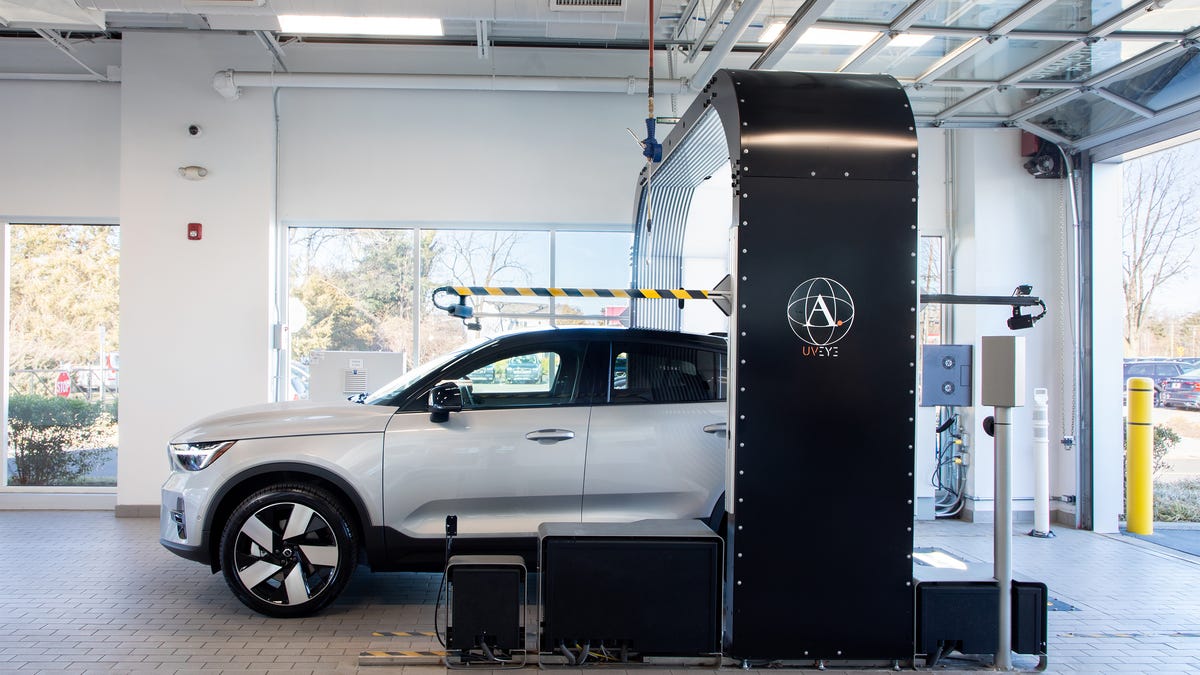Volvo Dealers to Receive AI Vehicle Inspection Tech
UVeye's camera-based system will be able to check for missing parts or defects.
If you've ever left a dealer's service department, only to find another problem or an unresolved initial issue, it can be a frustrating affair. Repeated trips to the lift can be a pain for owners and mechanics alike, which is why Volvo is rolling out a clever technological solution that could help ease that pain.
Volvo on Thursday announced that it will begin introducing artificial intelligence-based inspection systems to its dealerships. The program will begin on the East Coast, but eventually the automaker hopes to have this capability in a majority of its dealer service departments across the US.
The AI tech in question comes from an Israeli company called UVeye. This camera-based solution can finish inspections in seconds, shaving tons of time off the traditional multipoint dealership assessment. UVeye actually offers three different inspection systems relying on the same underlying theory. Helios focuses on the underbody, and Artemis is all about checking tire quality and air pressure, while Atlas uses 360-degree scans to look for body damage and surface rust.
The hope here is that UVeye's tech will ensure service departments don't accidentally miss anything when inspecting a vehicle. It can also speed up trade-in valuations and even create vehicle health reports. Plus, there's the peace of mind that comes with knowing that an AI, which doesn't get tired or overworked, has scoured your vehicle in precisely the same way it's done dozens or hundreds of other cars.
"An automated system can help resolve problems," said Rick Bryant, Volvo's US VP of sales and operations, in a statement. "It shows the vehicle's actual condition. The result is that customers will be able to see flaws such as a rusty tailpipe that they didn't know about. And they'll also know the retailer is being upfront with them."
Even though this setup might be new for Volvo's retailers, the automaker itself has had its eye on UVeye for some time. In mid-2019, the Volvo Cars Tech Fund announced a pair of investments in Israeli startups, one of which was UVeye. A second AI-based platform, called MDGo, combines vehicle collision data and medical knowledge to warn first responders about what kind of injuries to expect when arriving at a crash site.


